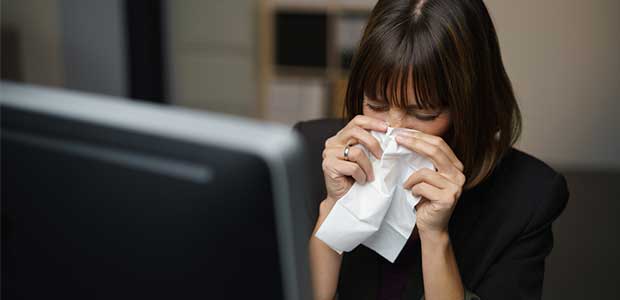
Top Ways to Protect Your Workplace from Coronavirus
Information and statistics on the Coronavirus, or COVID-19, are changing rapidly creating worry, chaos and misinformation to be spread along with the illness.
- By Sydny Shepard
- Mar 05, 2020
Information and statistics on the Coronavirus, or COVID-19, are changing rapidly creating worry, chaos and misinformation to be spread along with the illness. To combat both the spread of the virus and the negative emotions in connection with it, employers need to have an open dialogue with their employees about the virus, it's potential impact on the organization and what employees can do to protect themselves.
Here's our top tips for protecting the workplace and employees from spreading the virus, and in effect, helping to create a more thoughtful discussion between employers and employees.
Encourage Regular Hand-Washing
Remind employees that the best way to prevent the spread of the illness is to regularly wash their hands and avoid touching their mouth, eyes or nose. The CDC recommends washing your hands with water and soap for a duration of 20 seconds, rubbing and lathering the backs of the hands, between your fingers and under your nails. In order to effectively time out 20 seconds while washing your hands, you can hum or sing the "Happy Birthday" song twice from beginning to end.
To reinforce and remind employees that they should be washing their hands regularly, place signs around the building and especially in public areas such as bathroom and food preparation spaces.
Perform Routine Environmental Cleaning
Routinely clean and disinfect all frequently touched surfaces in the workplace, such as workstations, countertops and doorknobs. The CDC recommends that workers use cleaning agents that are usually used in these areas and follow the directions on the label. It is best to provide employees with disposable wipes so that commonly used surfaces can be wiped down before each use.
Actively Encourage Sick Employees to Stay Home
It is recommended from health professionals and organizations that employees that have symptoms of acute respiratory illness stay home and not come to work until they are free of fever, signs of a fever and any other symptoms for at least 24 hours, without the use of fever-reducing or other symptom-altering medicines.
Employers should ensure that their sick leave policies are flexible and consistent with public health guidance and that employees are well away of these policies.
Talk with Employees about Travel Plans
Advise employees to check for travelers' health notices in regards to their travel destinations. If the area is heavily affected, strongly suggest the trip be postponed or cancelled. Employees should also be sure to check themselves for symptoms of the virus if they do decide to travel, as to not infect anyone themselves.
Have an Open Dialogue and Share Objectives with Employees
Employers need to consider how to best decrease the spread of acute respiratory illnesses and lower the impact of COVID-19 in their workplace and share plans with their employees. Plans should identify and communicate their objectives, which may included one or more of the following:
- reducing transmission among staff
- protecting people who are at higher risk for adverse health complications
- maintaining business operations
- minimizing adverse effects on other entities in their supply chains
Some key considerations when making decisions on appropriate responses include: virus severity, impact of virus on employees that at higher risk of infection and possible increased number of employee absence.
To learn more about coronavirus and how to protect your workplace, check in with health organizations like the CDC and WHO.
About the Author
Sydny Shepard is the former editor of Occupational Health & Safety.